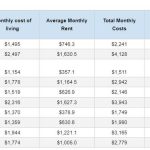Greg Laurie upbraids those wasting their days, exhorting, ‘Let’s get on with it’
Life is filled with opportunities. Every person has them. But what we do with them is the big question. Do we let them slip by and say, “Maybe next time. There’s always another day”? Or do we seize them?
The problem is that we may not have as much time as we think we do.
The late theologian Dr. Leslie Weatherhead calculated the average length of life with the hours of a day to illustrate the importance of numbering our days. He concluded that if your age is 15, the time is 10:25 a.m. If you’re 20, the time is 11:34, and if you’re 25, the time is 12:42 p.m. Once you’re 30, the time is 1:51 p.m. If you’re 35, the time is 3:00. And if you’re 40, the time is 4:08 p.m. By age 45, the time is 5:15 p.m. If you’re 50, the time is 6:25, and at age 55, the time is 7:24. When you’re 60, the time is 8:42. If you’re 65, the time is 9:51. And if you’re 70, the time is 11:00 p.m.
That puts it into perspective, doesn’t it?
The psalmist wrote, “So teach us to number our days, that we may gain a heart of wisdom” (Psalm 90:12 NKJV). The Living Bible puts it this way: “Teach us to number our days and recognize how few they are; help us to spend them as we should.”
Jesus told the story of a man who went on a journey and left his money with his servants. In those days, this wasn’t an uncommon thing to do. A wealthy man or a king would have many servants in his household, from those who performed basic labor to those who oversaw the financial affairs of the home, even managing a business.In many cases, some of them would be better educated and skilled than the person for whom they worked. What’s more, highly trusted servants had a virtual free hand within prescribed areas of responsibility. And when the owner went on a journey, he left full authority in the hands of key servants, who would have the ancient equivalent of a power of attorney. This was an understood practice of the day.
Jesus was describing a scenario in which a wealthy man went on a journey and left his key servants in charge of his possessions. Now, a talent was a measure of money, and the man gave five talents to one servant, two talents to the next servant, and one talent to another servant.
The first two servants made more money with what their master gave them, but the third servant buried the money in the ground.
What was Jesus saying to us through this parable? Jesus is like that wealthy man who went on a journey, and that journey spans the time when he left this Earth and ascended to Heaven to the time that He returns.
We are the servants to whom he has given talents. And we are to take what he has given and use it for his glory while we wait for his return.
Some Christians believe the Lord is coming back and are excited about it, but they aren’t really doing anything with their lives. They’re just sitting around and waiting.
This problem developed in the church of Thessalonica. Because they expected Christ’s return at any moment, some people became lazy and unproductive. As a result, the apostle Paul had to rebuke them.
He wrote, “We hear that some of you are living idle lives, refusing to work and meddling in other people’s business. We command such people and urge them in the name of the Lord Jesus Christ to settle down and work to earn their own living” (2 Thessalonians 3:11–12 NLT).
Loosely paraphrased, Paul was saying, “Get up and do something. Don’t sit around in idleness and take advantage of others. Be productive with your lives.”
There’s a place for watchful anticipation, and there’s a place for work and commitment.
Years ago, a wonderful preacher from England named Alan Redpath spoke at our church. He described how, as a young man, he was particularly struck one day by a statement his minister made in a sermon: “You can have a saved soul and a lost life.”
Redpath already was a Christian and was quite successful as a certified public accountant. But that day he realized that he wasn’t dedicated to God’s glory. He was aware that he was just living for himself. So after a period of time, he dedicated himself to a life of serving God. He prayed, “Lord, that’s not how I want to live. I want to dedicate everything to you.” And then God began to use him in a wonderful way.
It’s possible that some of us could have a saved soul and a lost life. Yes, we will get to Heaven. But we will come empty-handed before the One who gave everything for us and say, “Well, I was just really busy, Lord. I had other things to do. But thanks a lot for getting me into this place! This is great!”
The glory of Heaven won’t be the rewards we will receive. It won’t be singing with the angels or being able to talk to the apostles or even with loved ones who have gone before us. The greatest joy of Heaven will be Jesus and the fact that we’ll be with him, never to be separated again.
In that day I want to hear Jesus say, “Well done.”
Don’t you want to hear the same?
Then let’s get on with it. Let’s be productive with our lives and our time. Let’s seize the opportunities that God has given to us. And let’s take what he has given and use it for his glory.
Maybe you’re thinking, “But I don’t have much.”
Don’t insult God. If God has instilled something in your life, then it’s valuable. If he has given it to you, then it’s worth something. God can do a lot with a little. He can multiply what you have, and it can become more.
So take that ability, that gift God has given to you, and dedicate it to his glory. And then watch what he will do.












